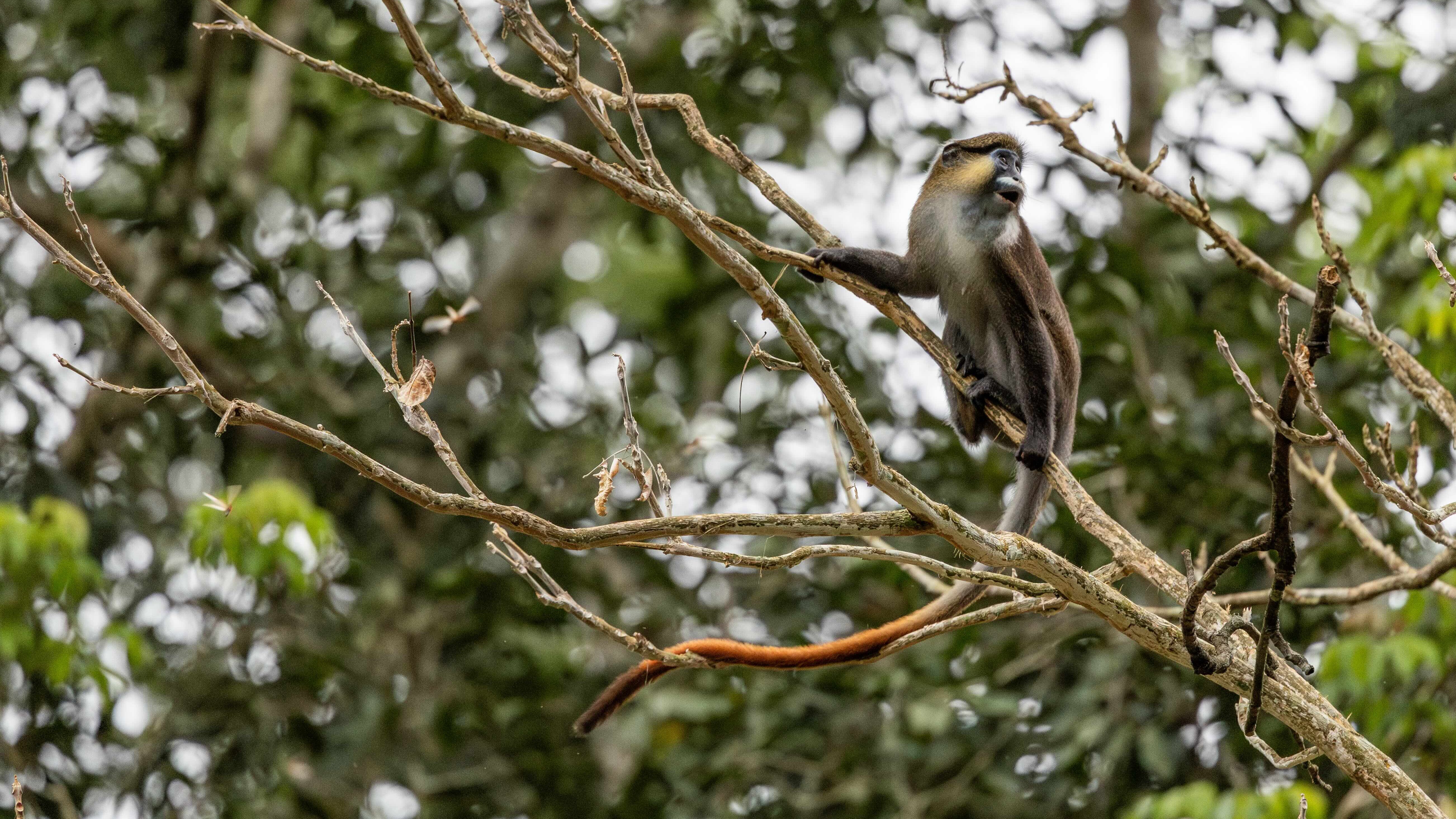Silver Jubilee: PROGEPP’s successes of wildlife protection, community empowerment

A moustached monkey (Cercopithecus cephus) seen in the peripheral zone of the Nouabalé-Ndoki National Park, where conservation actions have contributed to healthy population of wildlife. T.Nicolon/WCS
In its Silver Jubilee, the Peripheral Ecosystem Management Project (PROGEPP), has shared a success story of protecting gorillas, elephants, and other wildlife alongside empowering local communities.
Established in 1999, PROGEPP is a unique collaboration between the Ministry of Forest Economy, Olam Agri’s Wood Business - Congolaise Industrielle de Bois (CIB), and the Wildlife Conservation Society (WCS), which aims to work with communities for sustainable use of natural resources.
This collaboration also focuses on extending the conservation efforts into the buffer zone around Nouabalé-Ndoki National Park, in the forestry concessions operated by CIB.
The project covers a vast region of about 1.3 million hectares and it is a testament to sustainable ecosystem management, protected area buffer zone protection, local population partnership, and scientific research.
It operates in a crucial geographical area, bordering four protected areas, and plays a crucial role in preserving the Trinational de la Sangha (TNS), a Unesco World Natural Heritage site.
For 25 years, PROGEPP has been instrumental in conservation for globally iconic wildlife, protecting over 24,000 individual gorillas and 6,000 forest elephants within its intervention zone.
Additionaly, WCS said in a press release to newsrooms on August 5, 2024, that PROGEPP has been a catalyst for empowering local communities, creating sustainable jobs – offering over 165 contracts, to significantly reduce hunting and poaching pressure.
PROGEPP has spearheaded livelihood diversification projects, mitigated wildlife pressure and fostered community empowerment.
Major successes emanating from the 25 years of partnership include releasing over 1,400 seized animals back into the wild, seizing 850 illegal weapons and destroying over 110,000 metal snares; reducing elephant poaching significantly, with 3 carcasses reported in 2024 down from 33 in 1999 and creating over 400 micro-enterprises (shops, livestock and crops) to diversify and improve livelihoods and operating over 42 savings groups, benefiting 650 people.
Into the bargain is also the fostering of scientific research, leading to significant publications including the best practices guidelines for reducing the impact of commercial logging on great apes in Western Equatorial Africa.
Country Director for WCS Congo Richard Malonga said the PROGEPP-Kabo represents a successful partnership model between the public sector, a private company, and conservation organizations.
“Together, we preserve the exceptional biodiversity of the Ndoki-Likouala landscape in the peripheral zone of Nouabalé-Ndoki National Park for future generations,” Malonga said.
He added that the partnership strengthens conservation efforts while guiding local communities towards new livelihoods through participatory and inclusive management.
The Head of Corporate Responsibility and Sustainability at Olam Agri, Vincent Istace said the efforts are remarkable.
“They have protected thousands of animals and created a sustainable management model that inspires projects across Central Africa,” Istace remarked.
As a pioneer, PROGEPP’s innovative approach has inspired similar regional initiatives.
The Minister of Forest Economy of Congo, Rosalie Matondo reaffirmed the country’s commitment to preserving biodiversity and supporting sustainable initiatives for Congo including PROGEPP-Kabo.
“As PROGEPP celebrates its 25th anniversary, it looks to address new challenges, such as adapting to new road infrastructure to reduce poaching pressure. The project is dedicated to continuing collaboration with local communities and authorities to ensure a sustainable future for the region’s wildlife,” Matondo said.

Be the First to Comment